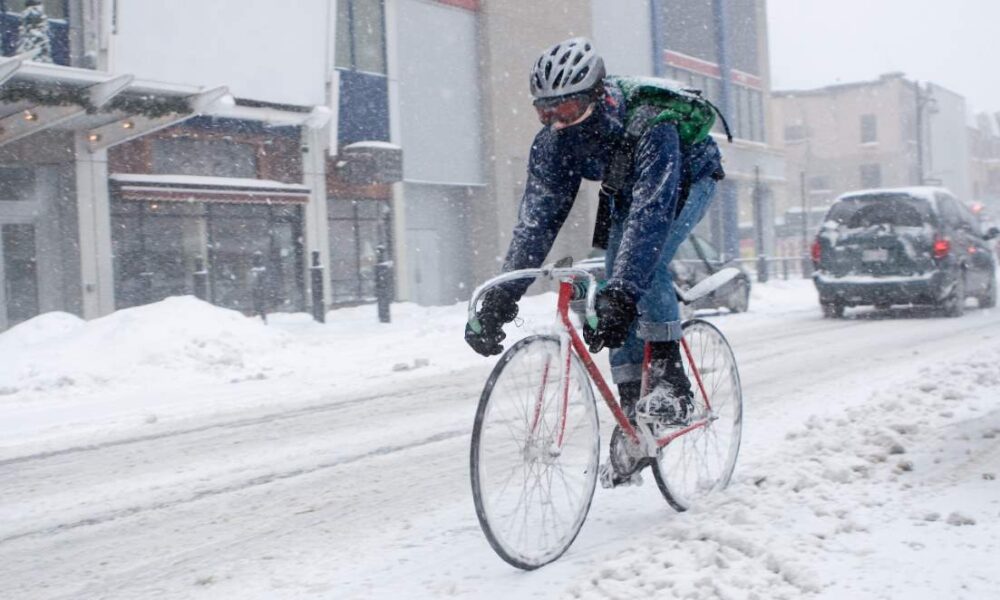The arrival of winter, with its sub-zero temperatures and snow-packed roads, transforms students’ lifestyles—especially when it comes to their daily commute.
Much of the student body can be seen walking or biking to school in the summer months, but far fewer cyclists are spotted on the roads once the first signs of winter approach. Though some bike owners might still be seen bracing the wind chill, Bixi, the city’s affordable and convenient public bike rental service, ended their season on Nov. 15. This means that many, including Arantza Fernandez, U3 Arts, have had to resort to other ways of travel.
“It was so easy to take the bike,” Fernandez said in an interview with The McGill Tribune. “I would be at school in five minutes, and I could come and go as much as I wanted. Now I have to walk to school, which takes me almost 15-20 minutes.”
However, unlike the weather these days, all is not bleak. Opting to walk to campus can bring about some positive and unexpected changes in one’s daily routine.
“The good thing is I now get to call people when I walk, like my parents at home,” Fernandez said.
Nevertheless, many cyclists still pedal their way through the snow to get to their classes—and many start gearing up for the winter months far in advance. Danyal Chaudhry, U1 Science and frequent winter biker, is familiar with the preparation process.
“Biking saves me a lot of time, and it is not as dreadful as you think when you have the proper gear for it,” Chaudhry said. “If you have big winter tires, some headlights for darker days and are wearing layers, you should not have much trouble biking to campus.”
It’s important for cyclists to know how to equip themselves and their rides to ensure safe travel. Experts suggest proper winter tires to prepare your bike for the snowy months, and regular cleaning throughout to prevent ice buildup and breakage from frozen parts.
Although self-preparation is needed, efficient snow plowing is also crucial to avoid wipeouts. Montreal’s winter bikers have formed a community that vocalizes and lobbies for these concerns. They call themselves the “hurlus,” French for “weirdos.”
Bikers are not alone in having to change their travel routes to school. Ibrahim Naveed, U3 Science, has become cautious, albeit hesitant, when walking to campus now; the dilemma of missing classes due to harsh weather is not unknown to the student body.
“The weather has made me reluctant to walk to class and I often think of taking the bus or, sometimes, not going to campus at all if it’s too cold out,” Naveed explained. “In the summer, I would normally just take my bag and run to campus, but now I have to make sure I am properly bundled up to prevent myself from freezing to death.”
With many layering up in their winter boots and parkas to walk to campus, car commuters who live farther from McGill or in areas with limited public transit face different challenges. For them, endless lines of traffic, inescapable construction reroutes, and icy roads increase the risk of danger and can lead to longer travel times. The Montreal Gazette offers a comprehensive guide for those who choose to travel by car in the winter. The SAAQ is another helpful resource.
With all these complications, many students opt for public transport, including the bus, metro, or commuter train. This is when the OPUS discount for McGill students comes in handy, reducing the monthly fee from $90.50 to $54 per month.
“I would never buy the OPUS monthly pass at its normal rate,” Naveed said.“But with the discount and the changing weather, I think it’s worth it, at least for the winter months.”
And so, every year, cylists, pedestrians, and car commuters alike prepare for safety and convenience; amidst the fierce Montreal winters, this small travel routine becomes a big part of our lives.








